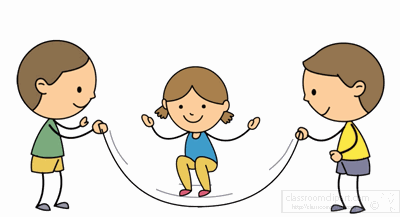If you read my last entry, you probably asked yourself what makes Cooperative groups different from other learning groups. Here you have the answer: Cooperative groups are different because of the integration of the five elements involved in Cooperative Learning. It is relevant to clarify that these aspects should be seen as a whole and must be developed conjointly. Bearing this in mind, I will explain the 5 elements and some strategies you can use to work on them.
The first relevant element to achieve cooperative groups is the Positive Interdependence, for achieving this aspect, teachers must provide a clear task and group objectives. It is important for students to realize that individual efforts will not be enough to overcome the task and that they need the help of each one of their partners in order to succeed. For doing this, you can establish objectives that all of the members of the groups should accomplish at the end of the lesson. Additionally, you should create clear and short instructions for the students, it will be better to have them written on the board so students can review them and know exactly what to do next.
The following element is called Individual Accountability, each member of the group will be responsible for accomplishing his or her part of the task, and the members of the group should be able to evaluate the process of the group and of each individual in it, creating strategies and solutions to overcome problems and difficulties in the group. One meaningful strategy to accomplish this element is to establish roles, allowing students to understand that they have a responsibility and that his or her group depends on the accomplishment of this task.
The next element is Face-to-Face Promotive Interaction, students should be providing feedback and encouragement to each member of the group. In this stage, learners should promote their partners’ success, helping, congratulating, sharing and backing them. I consider that if you want your students to present these attitudes, you are the first who have to model the behavior, encouraging, congratulating, and helping your students.
Finally, the last element is called Group Processing, in which students will assess their progress in relation to the group objectives established at the beginning, they should identify negative and positive actions to improve their development as a group and propose strategies to work more efficiently in next opportunities. At the end of each lesson, students review the objectives and make sure that each student has achieved them. In addition, students reflect the positive and negative aspects of working together, they can discuss or write their ideas down.
There are several ways in which you can work on these elements. For example, the way you provide materials and how it promotes cooperation and sharing. Moreover, you have to consider that the activities you propose should be designed for giving each student a responsibility or role.
I am sure that while reading this entry you have come with multiple ideas for working on these elements, please let me know on the comments below what strategies would you use.
Johnson, D., Johnson R. & Holubec, E. (1994) Cooperative Learning in the Classroom. Virginia: Association for Supervision and Curriculum Development.

No comments:
Post a Comment